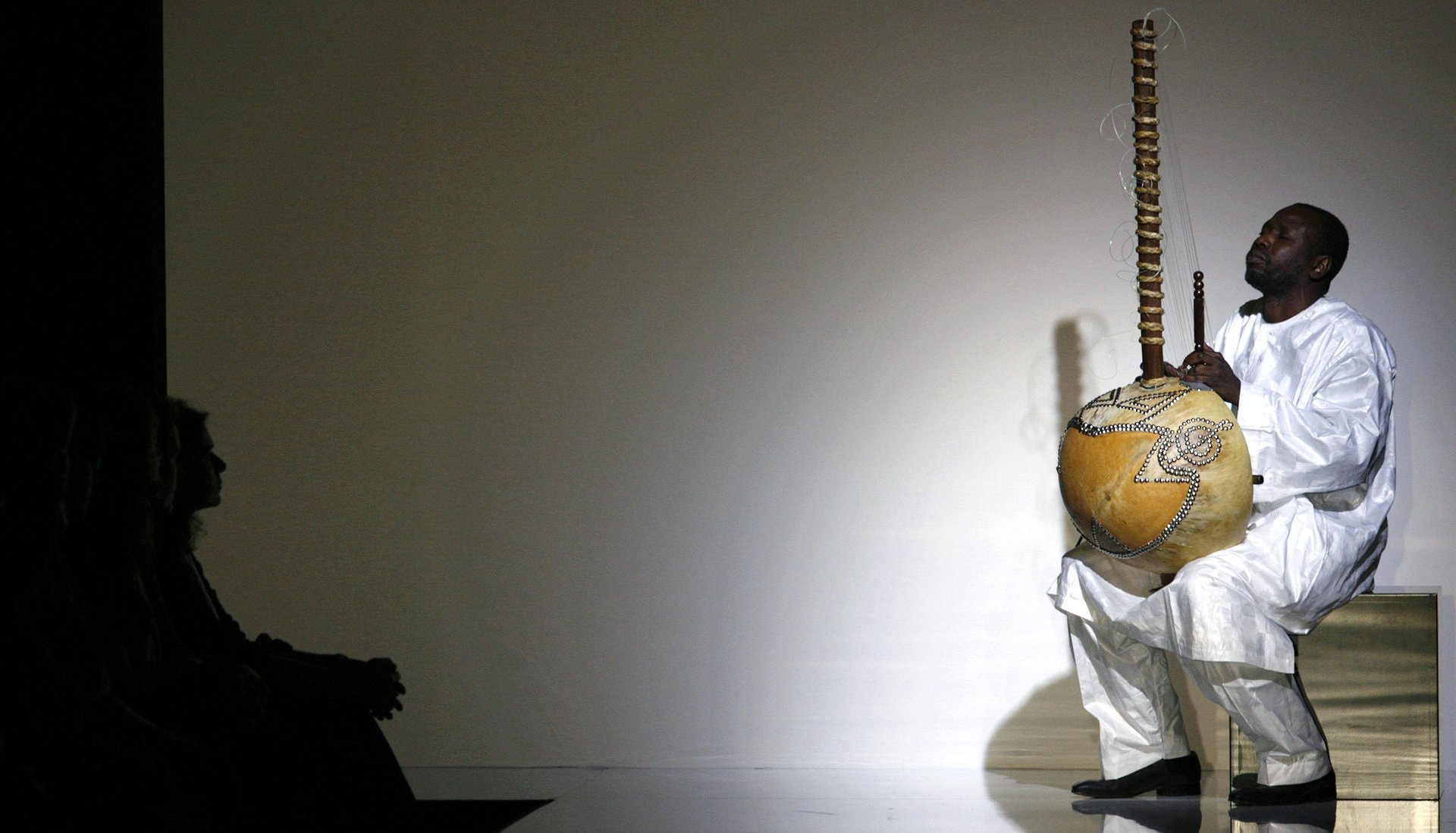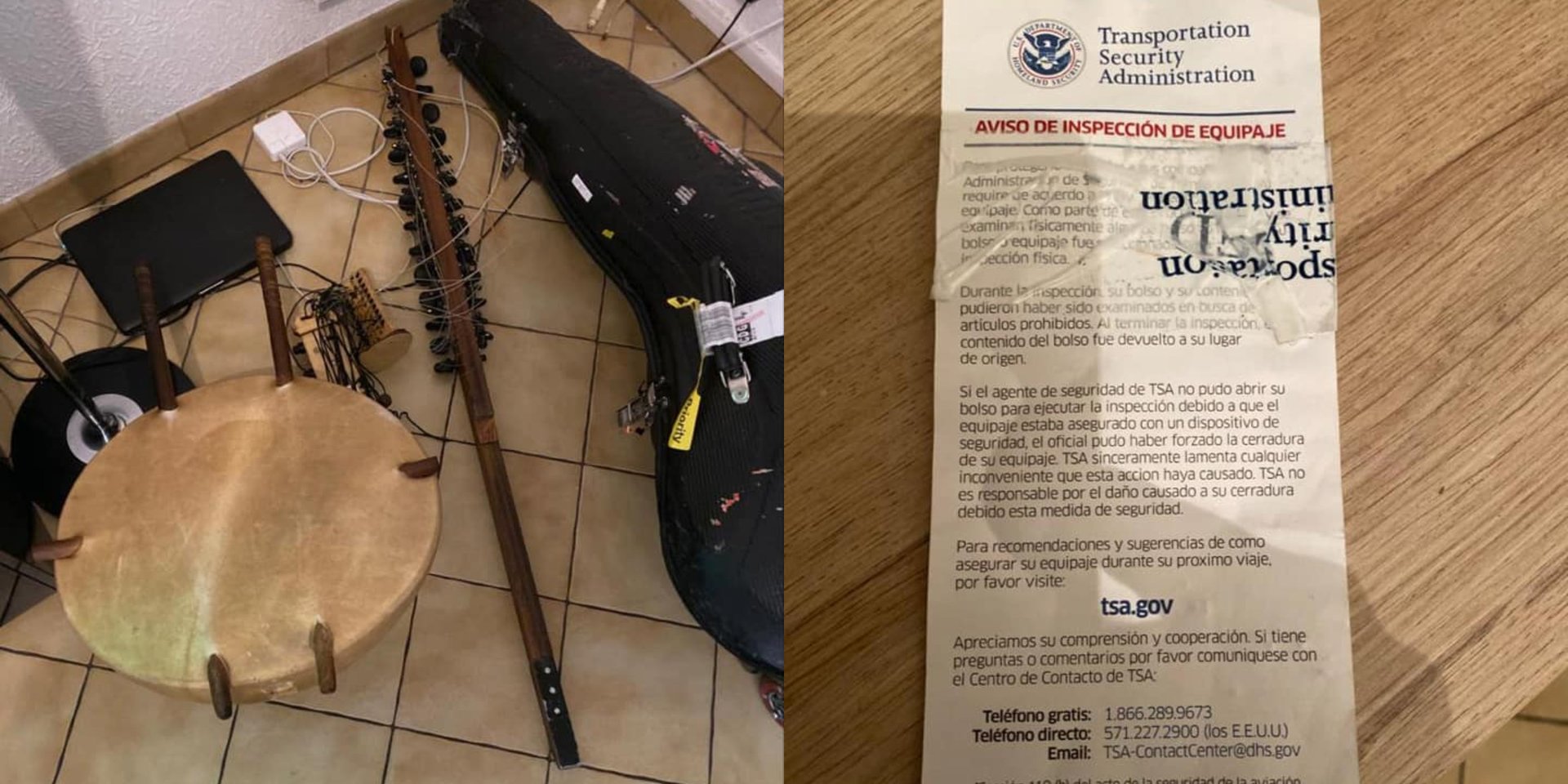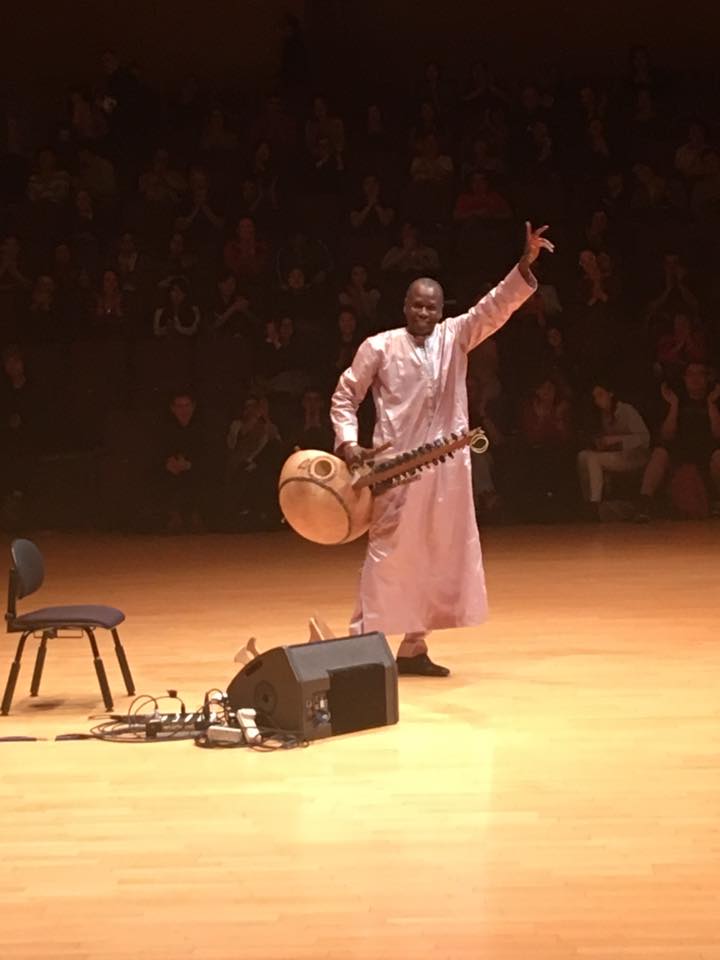How US Customs officers damaged a revered West African artist’s custom-built kora
On the morning of Feb. 4, the acclaimed Malian musician Ballaké Sissoko arrived at in Paris after a two-week tour in the U.S. to find his custom-built kora broken into several pieces in its hard case, with a notice of baggage inspection from the Transportation Security Administration (TSA), he said in a Facebook post written by British music producer and SOAS professor Lucy Durán.


On the morning of Feb. 4, the acclaimed Malian musician Ballaké Sissoko arrived at in Paris after a two-week tour in the U.S. to find his custom-built kora broken into several pieces in its hard case, with a notice of baggage inspection from the Transportation Security Administration (TSA), he said in a Facebook post written by British music producer and SOAS professor Lucy Durán.
Sissoko is one of Mali’s most famous players of the kora, a traditional string instrument that was played in royal courts and is now celebrated around the world. A griot who was born into the musical tradition, Sissoko’s father, Djeli Mady Sissoko, was also a revered musician. Ballaké Sissoko has toured globally and has collaborated with the biggest names in Malian music, including his 1999 release with fellow celebrated kora player Toumani Diabaté, “New Ancient Strings.”
Images of the broken kora and the TSA notice have been shared widely on social media.

Jihadists occupied northern Mali for nine months in 2012, during which time they banned music. Many musicians from the north fled to the capital Bamako, and the number of concerts and cultural events there also significantly reduced due to the political and security crisis. Groups like “Songhoy Blues” formed in the wake of that occupation, when displaced musicians found themselves in a new city and expressed themselves through their sound.
Eight years later, Mali is still battling insurgent groups, who have killed and injured hundreds of Malian troops in the past year. “The jihadists threaten to destroy musical instruments, cut the tongues out of singers, and to silence Mali’s great musical heritage. And yet, ironically, it is the USA Customs that have in their own way managed to do this,” the statement read.

Although customs agents have targeted different cultural objects in the past, it adds to the growing belief that the US department of Homeland Security under Trump has stepped up aggressively discriminatory tactics to isolate Muslims and Africans.
The destruction of the kora came days after four new African countries were added to the Trump travel ban, bringing the total number of African countries affected to six and restricting the travel of nearly a quarter of the continent. While Mali is not technically on the travel ban list, its citizens are sometimes subject to “extreme vetting” measures that can hold up the visa process indefinitely.
“The customs agents are pitiful. They need to respect objects of which they are ignorant of the value and provenance,” said Igo Diarra, a Malian gallerist and cultural actor based in Bamako.
“They treated the kora like it like it’s a weapon. It is a weapon, but a weapon that soothes the soul. It’s a sensual instrument, and the musician faces it while they play,” Diarra said, emphasizing Sissoko would have had a personal relationship to his instrument, which was custom made for him.
Diarra also noted that the kora was Sissoko’s livelihood and that even though it can be replaced, destroying it damaged Sissoko’s ability to work and make money.
Sign up to the Quartz Africa Weekly Brief here for news and analysis on African business, tech and innovation in your inbox